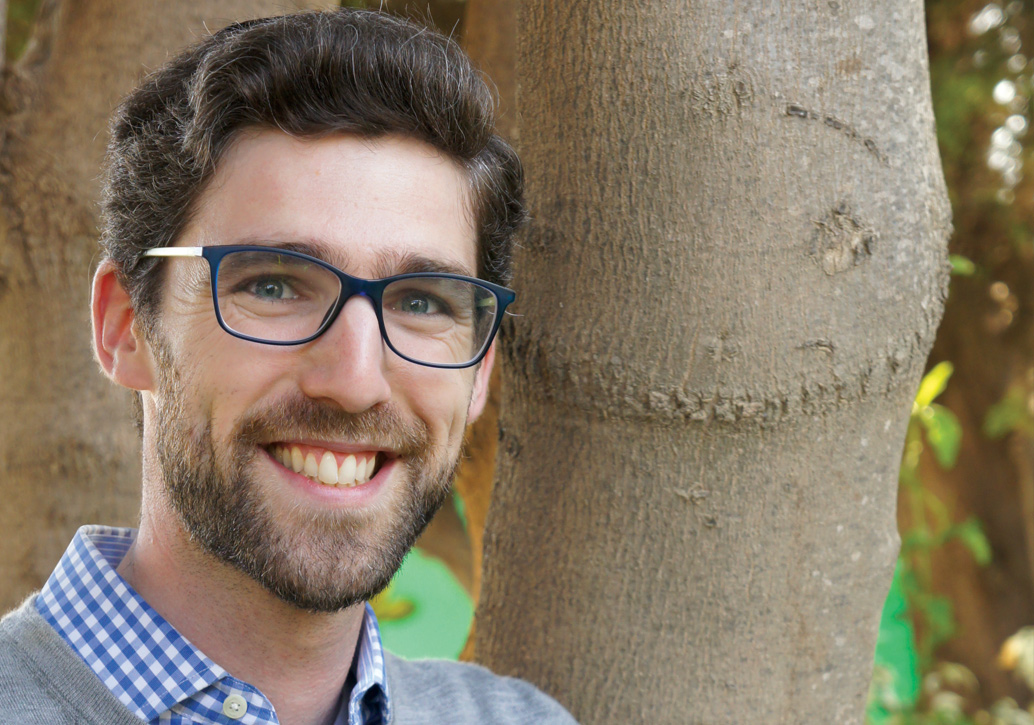A quest for meaning
By Judy Yormark Mernick
Anyone who has known Moe (affectionately referred to as Moshe) since he was a child knows that, for him, speaking—whether one-on-one or in front of 500 people—is a big deal. Moshe stutters. It began when he was about three years old, at which point we were told to ignore it, as most children who begin stuttering before the age of five stop on their own; it is merely a stage of speech development.
In Moshe’s case, however, it got worse. As he got older, he often was unable to complete a sentence without getting stuck. Even saying his own name was a challenge. Phone calls were extremely difficult; he bore the embarrassment of being hung up on when he was unable to identify himself to the person at the other end of the line, who would think it was a prank call. Moshe was talented, bright and athletic; but, to him, it was all worthless because he couldn’t talk.
Hard work, joy and pride
Moshe was teased for his stutter on many occasions, which increased his reluctance to speak. He became angry and resolved to work harder and harder with his speech therapist to help overcome his challenge.
When Moshe spoke at his Bar Mitzvah, after tens of hours of intense speech therapy, his therapist and I sat together and cried tears of joy and pride. He spoke so fluently that a relative came to me afterwards and commented that he was anxious about the speech for Moshe’s sake, but then realized that it must have been another of my children who struggled with a stutter because Moshe was flawless!
At 15 years old, Moshe went to Israel to finish high school. He was searching; searching for answers and, more importantly, for inner peace. He met mentors and teachers who didn’t see a stutterer; they saw a teenager looking for acceptance and meaning.
Years went by and Moshe came to a place of acceptance. He realized that he was not a stutterer; rather, he is a person who stutters. Once he accepted that and put it out there, he began to stutter less. It is not uncommon for him to include the fact that he stutters when introducing himself, just to ease his own level of tension.
Since then, Moshe has gone to Europe and Australia to run youth programs. He is a dynamic speaker who captures the attention of any audience, and a gifted teacher whose students truly enjoy his classes. His stutter is not gone and there are times when it is more pronounced than others. But the fact that Moshe accepts it makes him infinitely more fluent and comfortable with his audience—whether that is five men in a Talmud class, 50 synagogue-goers or 500 teenagers.
I believe that Moshe’s stutter has not only not held him back, but that his struggle with it has propelled him to heights he would not otherwise have dreamed possible.
A mother’s advice
As a parent of a stutterer, I offer the following suggestions for those in the same position:
• Encourage your child/student/relative/friend to talk. Let them know that it is what they say, not how they say it, that is important.
• Enlist the help of a speech therapist. If the first professional you try isn’t a good match, find another. When the individual who stutters is ready and willing to work at it, the methods will help. The stutter will not go away, but practising will help the individual gain the confidence to express him- or herself.
• Meet with the speech therapist to find out how you, friends and teachers can further help.
• We would not tell a person with crooked teeth not to smile, and we would not tell a person who limps to limit his or her walking. Encourage your child to talk. Let your child know there is value to everything he or she has to say, no matter how difficult it may be to get the words out.
Originally from Memphis and currently living in Toronto, Judy Yormark Mernick is a very proud mother and grandmother. She works as a law clerk/office administrator, but her primary focus is her family. As such, she is happy to promote her son’s campaign to pre-sell his upcoming book, The Gift of Stuttering.














